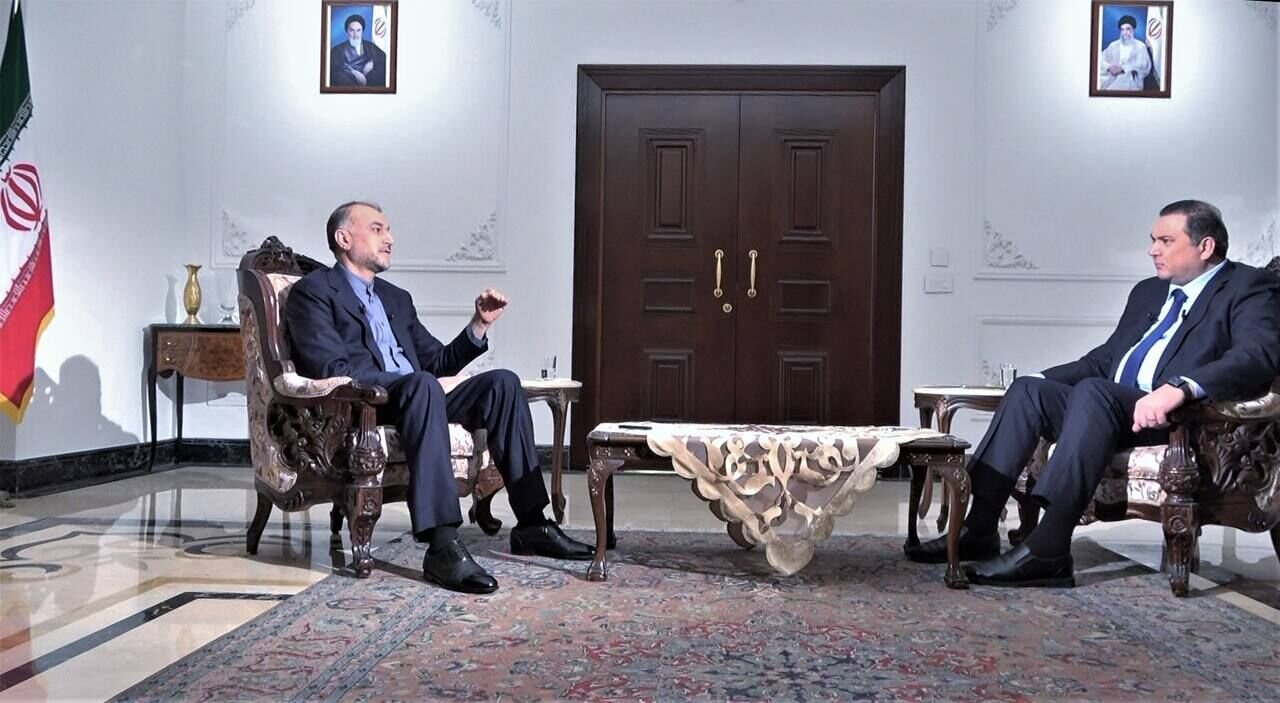U.S., Israel incapable of destroying Hamas: FM

TEHRAN- The foreign minister of Iran asserted that Israel and the United States have lost their offensive on the besieged Gaza Strip and have not been able to destroy the Palestinian resistance group Hamas.
Hossein Amir Abdollahian said that Washington and Tel Aviv’s inability to destroy Hamas militarily is the reason for the present humanitarian truce between Israel and Hamas.
In an interview with Lebanon’s al-Mayadeen TV channel published on Wednesday, he said that “today, we see that the U.S. and Israel are not capable of destroying Hamas in Gaza. Hamas is a liberation and legitimate movement and will remain in Palestine.”
He added, “The winners of the war are the Palestinian nation and resistance. So far, the United States and the Zionist regime have been the main losers of this war.”
Amir Abdollahian underlined that the region now has a political chance to avoid the conflict because of the current calm in Gaza.
“The U.S. must choose between the continuations of this situation as well as the region’s separation from the war, and the continuation of a worse situation,” he pointed out.
The senior Iranian diplomat added that Iran has received several messages from the U.S. urging it to use caution.
He also stated that Washington did not want the war to escalate and requested Tehran to advise resistance groups in Iraq, Syria, and Yemen not to attack American and Israeli positions.
“There are groups today in Iraq and Syria that act against the U.S. upon their own decision. They do not get our permission. They are not under Iran’s command. We have clearly said that Iran does not have any proxy group or organization in the region,” Amir Abdollahian averred.
“We told all actors and the U.S. that if you want restraint on the part of Iran, Lebanon’s Hezbollah, and other sides…, you should practically seek to stop the war and not take sides with the Zionist occupation and participate in its crimes.”
He said, “The Islamic Republic does not seek an extension of the war’s scope,” and issued a warning that this is likely to happen if the Gaza War gets worse.
The Iranian foreign minister, meanwhile, said that fresh fronts had opened up in southern Lebanon, Yemen, Syria, and Iraq to aid Gaza, and that some Arab-Muslim countries had demonstrated that they could not stand idly by while civilians in the Palestinian enclave were massacred.
The resistance, he asserted, produces and procures its necessary equipment and weapons.
Amir Abdollahian restated Iran’s position on the Palestine issue, which calls for a vote among all Palestinians —Muslims, Christians, and Jews— in order to determine their future goverment.
However, the Israeli regime has proven over the past 56 days that it is still the same usurping, murderous criminal entity after 70 years of occupation.
Amir Abdollahian pointed out that the Israeli regime’s use of democratic gestures and rhetoric is a painful irony of our past.
In addition, he called on the international community to prioritize Israel’s nuclear disarmament and the prosecution of Zionists’ war criminals.
The “bitter reality” in today’s world is that the UN Security Council issued no resolution, the Human Rights Council held no session and no fact-finding committee was formed to investigate Israeli genocide and war crimes in Gaza, he said.
After Hamas launched Operation Al-Aqsa Storm against the occupying regime in reprisal for its escalating atrocities against the Palestinian people, Israel launched the war on Gaza on October 7.
Large tracts of the coastal enclave lie in ruins, and the Tel Aviv regime has killed nearly 15,000 Palestinians since the war began, the most of whom being women and children.
In Gaza, where over two million Palestinians live under an Israeli-imposed complete siege, another 7,000 people remain missing and thought to be buried beneath the rubble.
Israeli attacks on Gaza were stopped by an extended six-day truce, which made it possible for relief organizations to provide humanitarian aid to the displaced Palestinians. These people are in desperate need of secure, continuous access to food, fuel, medication, and drinking water.
